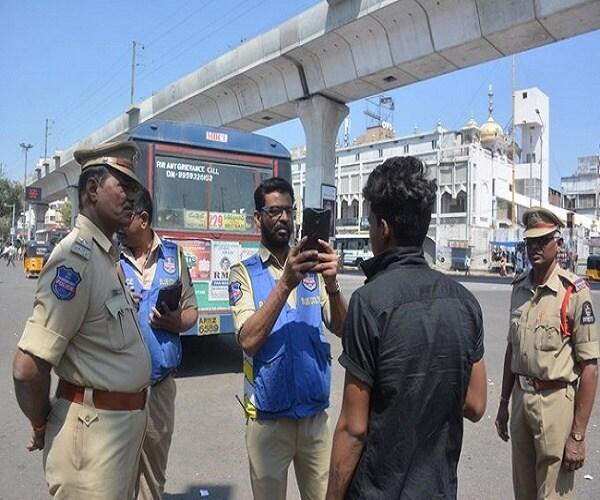UIDAI response to all ‘fake instances’ has been that their database is secure and that there has been no breach. Their standard response to each case that came to light was to deactivate all the Aadhaar numbers that were enrolled by the busted gang. Activists say the agency is yet to take an audit on the quality of the Aadhaar database.
It was in June 2012 that the Hyderabad police arrested seven men for creating 60 fake Aadhaar cards. The men had allegedly misused login credentials and had enrolled people on the Aadhaar database using fake biometrics and documents. At the time, the matter was just cast aside up by the UIDAI (Unique Identification Authority of India), with no further probe made public on whether there were any more instances of fake Aadhaar numbers being created.
Seven years later, on February 3, 2020, the UIDAI sent letters to 127 persons — who were accused of having gotten their Aadhaar numbers using a ‘fake pretence’ — asking them to show documents prove their Indian citizenship. Out of the 127 people, the UIDAI was able to send notices to only 35 persons and were unable to contact 52 persons, as ironically their Aadhaar details did not have any record of their addresses.
Sattar Khan is one of the 127 persons who received the UIDAIs letter asking him to prove his citizenship. Sattar had gotten his Aadhaar card made through an agent who had come to his basti (slum). When he got his Aadhaar card, it did not have many details. The details were later updated in 2016, his lawyer told #KhabarLive.
Though it is unclear how many among the 127 have fake Aadhaar cards, several news reports in the past had flagged that there could be discrepancies in the Aadhaar database due to flaws in the way private entities handled the enrolment.
Fake Aadhaar gangs
In October 2017 in Lucknow, another fake Aadhaar gang was busted and in this case, too, the accused were creating fake Aadhaar cards using their login credentials. In September 2019, in Meerut, another gang was bused for making fake Aadhaar cards for Rs 300 and Rs 500. A quick YouTube search reveals that there are applications available that allow anyone to generate fake Aadhaar cards using dummy numbers.
UIDAI’s response to all these instances has been that their database is secure and that there has been no breach. Their standard response to each case that came to light was to deactivate all the Aadhaar numbers that were enrolled by the busted gang. Activists say the agency is yet to take an audit on the quality of the Aadhaar database.
“The UIDAI did not do their checks, so the police now check for them,” quips Srinivas Kodali, an independent researcher on open data, who has been vocal about the unregulated use of Aadhaar and the threats of surveillance the database poses.
Rohingyas the larger target?
The Hyderabad police say that all the 127 cases may not be from Hyderabad city alone, but they could also be from across the state. The Hyderabad police have asked the UIDAI to deactivate these numbers, as they believe they possibly belong to Rohingyas residing in the city.
The lawyer of Sattar Khan, one of the people who received the letter from UIDAI, insists that his client is Indian.
The Hyderabad police told #KhabarLive that the verification of personal identities for Aadhaar is done at the local police station levels only.
“We have to verify how many cases we have sent to UIDAI and we have to see what are the names,” says Avinash Mohanty, Deputy Police Commissioner (Detective Department) of Hyderabad central crime station and the in-charge DCP of South Zone, tells #KhabarLive. “The state police comprise many units, so all 127 cases will not be from Hyderabad.”
Avinash says that as part of ascertaining a person’s identity, investigation officials often check the documents based on which an Aadhaar is obtained, at the police station level itself.
“If the document itself is fake, then the Aadhaar is not genuine. There are certain people, for example, if they are Rohingya refugees, would have a UNHCR card and if a person has that card as well as an Aadhaar card, then it’s an attempt to create a separate identity,” Avinash explains.
The UIDAI, despite having no authority to question a person’s citizenship, has asked these persons to present themselves for a personal verification on February 20. After #KhabarLive reported about these letters, this date has now been shifted to May. The UIDAI insists that the letters were sent out based on complaints from the Telangana police.
The office of Telangana Director General of Police (DGP) was unavailable for comment.
Why do police need your Aadhaar?
For the Telangana police, accuracy in the Aadhaar database is of prime importance, as it helps them profile criminals better. The Telangana police have often been accused of stopping people on the roads and collecting their biometrics, personal details as well as Aadhaar details through various operations such as Operation Chabutra. The police have also begun asking people their Aadhaar details through Cordon and Search Operations (CASO).
“What investigation is the police conducting? How do they have this data and specifically target 127 people? They didn’t ask random people but asked 127 specific people,” says Srinivas Kodali. Kodali also referred to data collection being carried out by the Telangana police through operations such as Operation Chabutra and CASO. “If these are fake Aadhaar numbers, based on false data as claimed by the police, where is the false data emerging from?” he asks.
The Telangana government has its own databases about citizens; it is also accessed by the state police through the Integrated Information Hub (IIH), a software solutions platform also known as the Samagra Vedika. The local police access these databases for day-to-day crime investigations through apps such as TSCOP, DARPAN, HYDCOP. These apps also allow the police to collect data of persons even if no crime has been committed and store it on the IIH.
As per the 2016 tender specifications calling for building IIH, the software was to give the police the ability to store a 360-degree profile of a criminal, with Aadhaar being one of the key documents to match a person’s data with other external data sources available with the police.
Activists like Kodali are questioning the legal provisions that allow the police to collect citizens’ data and process it for data analysis with little or no legal oversight.
“Will change wordings”
The UIDAI, meanwhile, has said they would mend the wordings in their letters if it seems to be “out of jurisdiction.”
Speaking to #KhabarLive, RS Gopalan, the Deputy Director-General with an additional charge of Hyderabad Regional Office, said that the body has sent similar notices with similar wordings previously too, but they were never questioned. He added that since the topic of citizenship is a “burning issue” these days, the UIDAI will look into the wording of the letter. The UIDAI insists they do not have the right to cancel anyone’s citizenship. #KhabarLive







